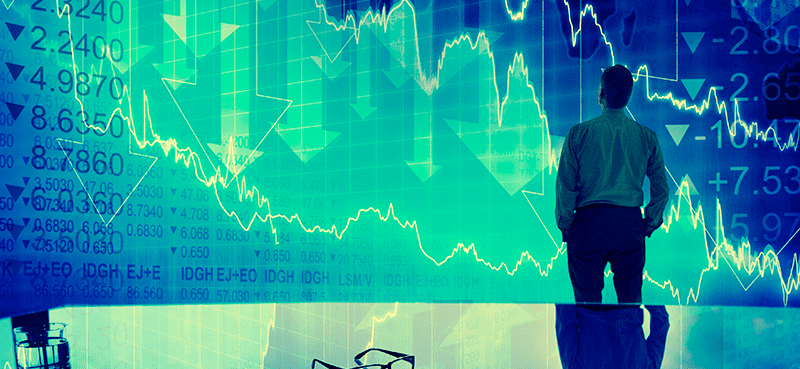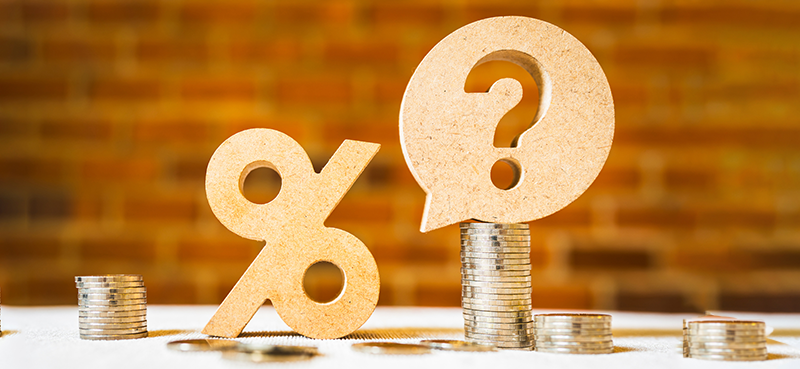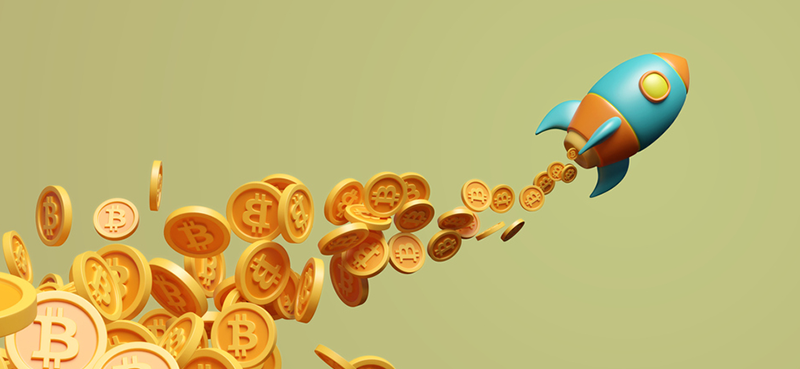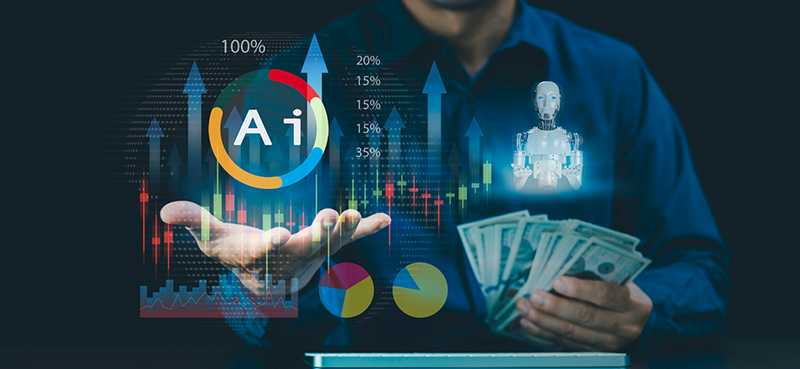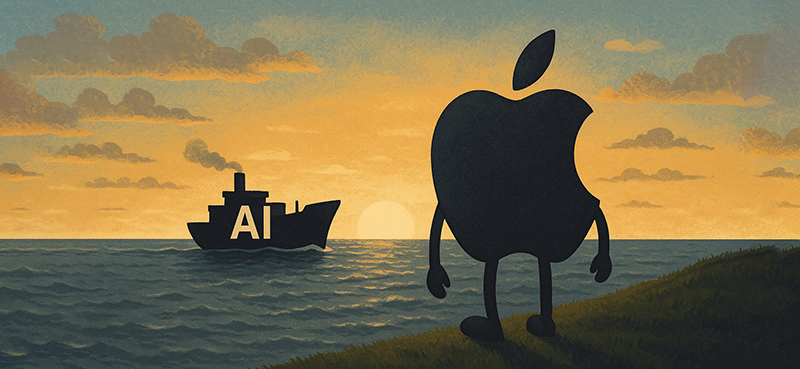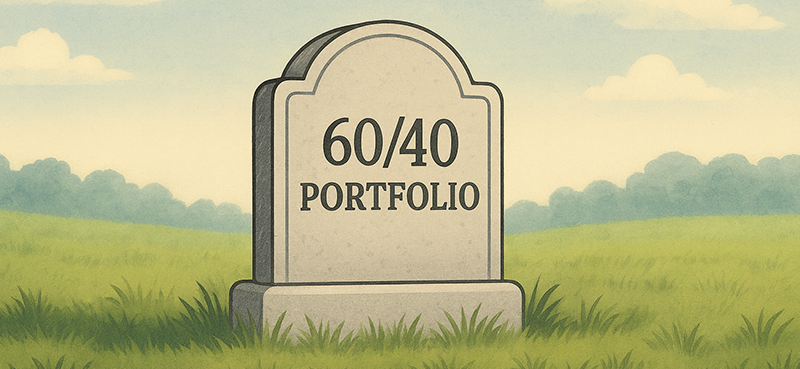Frank Curzio
We haven’t hit a market bottom yet… but I’m already buying
To start the show, I share some personal stories about the inflation I’ve witnessed. I break down why the Fed is forcing us into a recession… why we (likely) haven’t hit bottom yet… and what you should be paying attention to in this deleveraging process.
The current bear market is tough to stomach… but the lower the stock market goes, the more attractive stocks become. I share why I’m getting more aggressive with my buying… and one particular country I’m investing in (hint: it’s in Asia and has a booming energy sector).
Plus, I share my checklist to find the best sectors and stocks… And why I’m crazy bullish about small caps…
Wall Street Unplugged | 909
We haven't hit a market bottom yet... but I'm already buying
Announcer: Wall Street Unplugged looks beyond the regular headlines heard on mainstream financial media to bring you unscripted interviews and breaking commentary direct from Wall Street right to you on main street.
Frank Curzio: What’s going on out there? It’s Tuesday, June 21st. I’m Frank Curzio, host of the Wall Street Unplugged podcast, where I break down the headlines and tell you what’s really moving these markets. I woke up on Monday, put on CNBC to see what the markets are doing. Figured they’re down a ton, since they’ve been down every single day, since the past 12 weeks, and Shark Tank was on. I said, what the hell’s going on? I had no idea it was an actual holiday. Juneteenth. I do like three-day weekends, even though I was working yesterday, but learning a lot about Juneteenth. Now it’s a holiday and celebrates emancipation of enslaved African Americans going back to 1865. So now, it’s the longest running holiday, which is celebrated in Texas. But yeah, I was just surprised. It’s the first year to celebrating it that it’s a national holiday. So I woke up, I had no clue that all banks closed, everything’s closed, markets closed.
Frank Curzio: Again, as we know, I wasn’t working hard, but just learning more and more about that holiday. As people celebrate it, which listen, it is what it is, and that’s cool. I don’t know if I would ever put a giant 24-foot tall Afro hair pick with a black fist on the handle in Lafayette Square in New Orleans. That’s what the mayor actually did. I don’t know, I think that’s kind of insulting to black people anyway. But what crazy times?
Frank Curzio: I just feel like even when you’re watching the CNBC, I just feel like that there’s such separation here and it’s hard not to get involved in it. I think people are forcing racism. But even some of the policies that are going on, which we’re seeing. And the reason why I bring this up, not political, I know this is an investment podcast, but I want you to try to learn of how to play these things and play these big political themes because they have serious implications for where you’re investing, where money is flowing, what country. And that’s we’re going to talk about later, because I want to talk about the state of the markets, which it’s pretty insane right now.
Frank Curzio: Inflation obviously is still taking center stage. We all know it continues to increase. Me, personally, Father’s Day was great. Hopefully, all you guys enjoyed Father’s Day. My two experiences, went to one restaurant I like to go to, and my daughter likes nachos. They didn’t have nachos, mozzarella sticks, or pizza skins. It was like out of seven appetizers, I think they didn’t have five. Went to Cold Stone the next day, my daughter wants some ice cream. I said sure, no problem. My 11-year-old went away for the first time, to basketball camp. So, she’s away from us for three days without her parents. Big deal for us. I’m sorry, that’s my 14-year-old, which is a little weird, and she was nervous. Really, really cool. So, we spent some time together on Sunday, and she’s like, hey, can we get ice cream?
Frank Curzio: I said sure. And they’re out of the large cups, and we didn’t order a shake. She got a small ice cream. I didn’t get anything. I’ve just been eating very good lately, at least trying. But they couldn’t make large shakes. They didn’t have the cups for large shakes.
Frank Curzio: So, you still see in supply chain concerns, you still see major labor issues. We’ll cover that in a minute. That’s a huge concern. It’s a concern because I can’t figure it out. If any of you can figure out, frank@curzioresearch.com. I’m trying to figure out why, when you look at the workforce, why nobody wants to work at these places anymore? Whether it’s restaurants, it’s services, almost every one of them are struggling. And some of them are raising prices, they’re offering much better pay. But since COVID, there’s been this shift. And I get it when you’re getting paid money through the government, but that’s stopped. So, where are these people? Where are they working? Why can’t people hire anyone? And that’s major, because what’s a company going to do? But obviously, if you’re getting busier, it’s going to result in worse service.
Frank Curzio: So, you’re going to have to raise prices even more, which we’re starting to see. People are closing their wallets. We saw that with Walmart and Target, those warnings came so sudden. And then what, three weeks later to Target once again, the margin is going to get hit because they’re setting a massive inventory, 35% across the sectors. So, all is crazy demand, and they couldn’t get supplies. So, what did they do? They over-ordered, and then demand fell off a cliff. And you saw Target and Walmart fall by the worst amount in a single day since 1987. Are you kidding me? 1987. That’s how far those stocks fell. So, you’re seeing people shrink their budget, closing their wallets. They’re seeing this special energy files, a gallon gas on average across the nation, food prices through the roof.
Frank Curzio: So, a lot of negatives. And you’re putting on CNBC, and I want to put on CNBC and Fox business, the gauge sentiment of what people are saying and everyone 100%, there’s no one on there that’s telling you buy stocks. If you listen just for an hour and the analyst coming on and comparing and showing their notes, and they have data and stuff, which is okay, and I’ll break it down and tell you why a lot of it’s full of shit. But as you’re listening to, it makes you want to throw yourself off a building. It’s going to get a lot worse. It’s going to get a lot worse. I mean, where were these guys in November and December and January, when the Fed obviously was saying, “Hey, we got this wrong. It’s not transitory. We’re going to have to aggressively raise rates.”
Frank Curzio: Where were you? Now, you’re seeing stocks sell off, and we’re in a bear market, a bear market, technically a bear market. But stocks have sold off significantly outside the S&P 500 risk assets, but you’re just watching that. It’s crazy. And they’re bringing up some data points, valuations of past major recessions, saying we still have another 30% downside based on what the average PE is during recessionary times, comparing those multiples in past bear markets. When you’re coming off those huge bullish conditions or long bull runs, the S&P has fallen between 20% and 33% during these crashes. And we’re down, what, 21%.
Frank Curzio: So, they’re saying on average, I think it’s 27, 28%. So, we still have some more room on the downside, which is okay, I get it. I see what you’re saying. But what’s not being mentioned is, they’re just comparing the S&P 500, not comparing all stocks. But if you look at the Russell’s down more than 30%, you looking at risk assets, holy shit. SPACs, IPOs, growth stocks. I mean, these things are down 60% plus. What’s holding up the S&P valuation is, you have trillion dollar companies that are still getting it done.
Frank Curzio: You’re going to see these massive selloffs in Apple, Microsoft, Google. They still control the world. So, can we look, like is Apple’s comparison and say, “Well, this normally happens.” Because when you look under the hood and you take out some of those big names and then you throw in the SPACs, the IPOs, growth stocks, holy shit, we’ve never seen anything like this, anything like this during a bear market period, that’s not a Black Swan event. Not like the credit crisis or COVID, where we saw everything absolutely crash. Now markets like this, when we saw the dot com, it was technology falling 70, 80% and bottoming the NASDAQ, you’re seeing a lot of these companies down that much. I mean, again, the NASDAQ is filled with a lot of those big companies in trillion dollar evaluations. So, you’re not seeing it that bad when you look at the major indices, but looking under the hood individually, holy shit. I mean, total risk off the table, total risk. Why? Because we’re seeing the largest leveraging process in history. You’re seeing trillions, absolute trillions be removed from the market.
Frank Curzio: Bank of America publishes these numbers, and I think it’s like 30% of all the money or all the easing, which is, I forgot the exact number, but I think we’re up to about 23 billion or something, or how much we account for that. And it’s incredible. It’s incredible how much we had, 30% of it. It’s insane. And we’re talking trillions, when the market was fine in 2021, when assets got back to record highs, we’re still printing like idiots. And we still wanted to pass the Build Back Better bill. Thank God for Manchin. Holy shit. Imagine what we would be in terms of inflation. We’d be a 12, 13%. That’s $4 trillion of printing. Now, we’re taking it all out of the system. That’s what the Fed has to do. So, what’s concerning to me, when I see a lot of these guys get on TV… Let’s talk about some of the concerns.
Frank Curzio: This isn’t going to be the fun podcast. This is going to be how to position yourself, and what I’m doing, and pay attention, because this is going to make you a lot of money. Please pay attention to this. I’m trying to make it as interesting as possible. Because I know I mention some numbers, not crazy numbers. But looking at estimates, they’re still way too high. I mean, starting to change a little bit. Wall Street started lowering their earnings estimates, GDP estimates, and 2023 GDP forecast for Evercore and a couple of others. I think they went from 2% to 1%. The White House still seeing two and a half percent growth next year, which we’re not going to see. We’re not going to see. But it’s funny how economists got this so wrong. And there’s such a difference between an economist and a market analyst. Where they’re concerned, recession, recession, are we going to see recession? We’re not going to just say, “Who the fuck cares if we see a recession?” The only people that care is the White House. It’s political. It’s a great headline. I get it. I understand.
Frank Curzio: But if we see two quarters of, and again, recession is defined as two negative quarters of GDP. So, say if we get growth of 0.1% and 0.1%, isn’t that at recession? I mean technically, it won’t go on your record if you’re a president during those times, you know? That’s what you want to try to avoid. But the Fed is forcing this. They have to force a recession. That’s what they have to do. We’ve been saying it for over a year, the Fed has to force a recession. They take money in the market. It’s dangerous because it’s the first time in 12 years, where the Fed’s not there to bail you out.
Frank Curzio: So, we’re heading into a recession. The Fed is forcing it, and inflation is that high. It has to force it. That’s what they do. And, if you’re wondering whether it’ll be a recession or not, look at the last 15 hiking cycles. 11, we’re associated with recessions. We’re going to be in a recession. And again, makes for a great headline. But for investors and individual investors, it’s not a terrible thing. The recessions used to be normal, but the Fed didn’t allow it since the credit crisis kept rates low, buying treasuries, push more money into the economy. Need a bailout, you got it. Those days are over. We used to get a recession every five years. And it’s good because it wipes out all the bullshit while survivors, those good companies, tend to grow considerably in the years after, because they’ve taken all that market share from the companies that went bankrupt and did not survive.
Frank Curzio: We saw that during a credit crisis. We saw that during the dot com bubble. We ‘ve seen it in past recessions, and we’re seeing it now. I mean, look at crypto and all these crazy lending companies. It’s something that I spent three months trying to understand and talking to people, and I still couldn’t. How do you pay 12, 13, 14, 15% interest? In order to be paying that, you have to be making more than that. And how do you do that? Well, if crypto prices are going high, maybe that’s the way, but nobody shows the balance sheets. Nobody shows anything. Because these things aren’t deemed securities. So, you don’t know if they have cash in a balance sheet. So, you see a company that’s Celsius, huge, huge lender. There’s big hedge funds blowing up now. I mean, the leverage in this industry is insane. And if you look at the credit crisis, that was DeFi at its best.
Frank Curzio: That was DeFi its best. You say, Well there was regulation. No one knew what the hell was going on. The Fed had no clue what was going on. I mean, exposure to AIG, how long did that take? If they really knew what was going on, they wouldn’t have let Lehman fail. They had no clue what was going on. It was all under the table shit, leveraging. It wasn’t a subprime debt that crushed the markets. It was the leveraging of 30, 40, 50 times in synthetic loans and all this crazy shit off of those subprime mortgages. That’s what crushed the market. Need a 5% downturn in home prices, the whole market was going to crash. That doesn’t happen if you’re not a margin. So that’s what you’re seeing it, where a lot of these companies worth tens of billions of dollars in crypto and all this lending bullshit, you’re seeing them unfold, and they do hold what? Bitcoin, Ethereum, on their balance sheet, which they’re being forced to sell.
Frank Curzio: So you see those two, two biggest crypto currencies, get nailed. Look what happened this weekend when Ethereum fell like 800 or something, 900, and then Bitcoin was under 17,000. Both recovered over 20% from those lows. But that’s what you’re seeing right now. And even in all markets, you’re wondering why… Hey, I got good companies that reported decent earnings, and they’re down 25%. Why? It’s because it’s the leveraging process. So anybody that’s looking at stocks right now, it’s not the bottoms up analysis. Wow, this company’s cheap and growing here. It doesn’t matter. Right now, it’s a macro story. We need to see a bottom first. And I think it’s going to happen a lot sooner than people think.
Frank Curzio: You don’t have this uncontrollable inflation. I mean, you had it, but these companies don’t have pricing power that go forever. There’s a certain price that people are going to be like, fuck it, I’m not paying that. And we’re there. We’re pretty close to being there, where people are changing their habits. And you’re seeing that at earnings, you’re seeing companies lay off workers right now. You’re seeing that across the board, which is a good sign. Target and Walmart telling you that margins are going to get hit because they have to lower prices because inventory’s too high. That’s the first deflationary sign I’ve seen probably in two to three years. That’s a good thing. That’s what we need to see. Beginning back to Fed and recessions, again, used to be normal, every five years. And the Fed, just not to allow it after the credit crisis…
Frank Curzio: And now all of a sudden, you reverse course. People forget when you don’t have the Fed there, holy shit. And it’s an unlimited printing press to save the world, keeping interest rates low. Now you don’t have that. As interest rates go higher, it makes borrowing more difficult, which means you’re not going to have that money to pay for certain things. That money that you want to buy, new stuff is going to shrink. That amount is going to shrink, which means you’re going to focus on things that are important to you. And that’s how you have to look at stocks. It’s almost like looking at a social media company. Everyone’s fighting for your time. That five extra minutes that you’re going to do something, is it going to be TikTok? Is it going to be Netflix? Is going to be Facebook? What’s going to be? And that time, that five minutes results in a hundred billion dollar, 500 billion dollar company, sometimes a trillion dollar company, depends. Depends how long you’re staying on there. They can charge advertisers. They’re all fighting for your time.
Frank Curzio: But looking at the markets today. We’re getting a nice rally, which shouldn’t be surprising. Shouldn’t be surprising, this rally. The bull-bear indicator from Bank of America, and a couple companies track this, but this measures a dozen technical indicators, the breadth of the market, option activity and VIX and all that. And it throws it into this indicator, and it goes from zero to a hundred. And it’s a contrarian indicator. So, extreme bearish is zero, meaning that you should be buying stocks if it’s zero. Very hand-over-fist. And if it’s a hundred, that’s a bullish rating, meaning you should be selling stocks. That’s again, contrarian indicator.
Frank Curzio: The rating between, you’ll usually see between 20 and 80. It’s zero, it’s at zero today. Well, actually, before today’s open. So, during the weekend it was at zero, zero. It doesn’t get more bullish than that from a technical standpoint. That means the whole world is leaning towards one side. All these shorts, you just need a little bit to happen, and boom, you’re getting a nice market route. That may change: I’m doing this at 10:30 right now, today, it may change. Maybe we fall. Every rally has been met with selling. It’s not a buy the dip market anymore. It’s more like sell the rips because of all the confusion and uncertainty. We on inflation. We’re likely to see that again.
Frank Curzio: And that confusion, that’s what it is, the uncertainty. People worry that inflation’s never going to come down. They’re still going to have supply chain concerns, labor issues. We still have that. Russia-Ukraine, when’s that war going to end? Leading to higher energy and food prices and supply chain concerns in those two industries. So that leaves a question, “Do I just, just get out of the market, stay in cash. Is this crazy?” Hold on a minute. Just keep listening just for a little bit longer.
Frank Curzio: So people ask me, Frank, what are you doing right now? I’ll get out of the market. What are you doing right now? What are you doing right now? And for me, I’m going golfing more than ever, going to happy hour, getting drunk. I’m just kidding. I’m not doing that. I’m actually working harder than I’ve ever worked in my career. And the reason is because for me, I’m a guy to focuses on my mistakes. That’s how you get better. My biggest mistakes was not getting more aggressive during times like this. I’m not saying I’m throwing every single penny I have in the market, but I’m picking away and I’m buying.
Frank Curzio: And these major pullbacks that you’re seeing… And forget about the 20% in the S&P 500, and it usually goes down 27%. Again, you look under the hood, there’s names down 70, 80% that are decent names that you’ll find. But I want to be more aggressive when times are shitty because they don’t happen often. I mean, think about it. Think of the long-term buying opportunity. Think of the ’87 market crash. By the way, ’87 market crash, largest on record at that time, massive one-day crash. The Dow finished the year higher that year. That’s interesting. Think about the dot com crash in 2000. Great opportunity to buy tech stocks. Yes, 2001, 2002, two years you’re sitting there and shit, it sucks. Think about four or five years from now. That’s how you should be thinking as an investor. I know it’s hard because everything’s today, tomorrow.
Frank Curzio: Oh my God. Everything’s right now, with social media. Send the email, some person in China opens it up in a half a second. Less than that. I know everything’s immediate and everything is designed to scare the shit out of you. Like they did with tariffs, like they did with so many different issues over the past 10, 12 years that probably kept you out of the markets. When you shouldn’t have been out of the markets with the Fed keeping rates at zero for almost a whole period outside of 2016-17, and buying bonds and flooding the market with cash. You should have been in the market. Everything was going higher. But again, everything’s going to amplify, and you watch it. The headlines, you see everything in social media, it’s right in front of you. Until you have young kids talk about racism, critical race theory, and politics.
Frank Curzio: I didn’t know anything about politics until I was like 25, 27. I mean, my daughter, they had CNN on in a fucking classroom when she was 13. So, I pulled her out of the school. I don’t care if it’s CNN or Fox. Why do you have that shit on in front of kids? Are you kidding me? With all the bullshit? I mean, it’s a different world. Everything’s in front of you today. You see everything. So, it scares the shit out of you, and that’s okay. But think about your 401k and long-term holdings, and yes, you’re looking at it being like, wow, I’m down right now. It’s getting killed. Yes. But you know, if you’ve been in the market for the last 10 years, you’re considerably still. But these times like this, when the market credit, COVID, 2008 credit crisis, what happens? Look at those buying opportunities.
Frank Curzio: I’m not saying that, go on margin, buy everything in sight. But here’s what I’m looking at. I’m looking at China. You don’t hear me say that often, do you? I know people tell me about China for decades and decades and decades, but right now, China’s kicking our ass. They’re producing so much cheap energy, so much coal. They’re stockpiling everything. Yes, we see places that are closed, and Beijing now with COVID… But it is opening. You’re starting to see reopens. And it’s an economy that is much, much better shaped than we are. That’s where the growth’s supposed to take place. The world growth and stocks have never been cheaper, but they’re light years ahead of us. They don’t deal with this ESG bullshit where… I don’t care, it doesn’t matter what the macro conditions are. No more fossil fuels. That’s what our administration ran on. That’s fine. You could say, They opened up federal lands, which is bullshit. Saw the Exxon CEO on TV, just rip it apart the administration about how much money that they spent. And again, they’re going to tax them and do whatever.
Frank Curzio: We have a pro-alternative energy, which, again, alternative energy, climate change, serious things. But at times like this where energy prices are, let’s produce as much as we can and throw some of those profits into alternative energy. Because right now, China’s laughing at us. Venezuela’s laughing at us. The Middle East is laughing at us. Everybody’s laughing at us, because we’re a complete joke. And we’re losing power when we have the greatest and most powerful commodity in the world. And it wasn’t like that ever until 2009, ’10, ’11, fracking, hydraulic technology, and drilling, horizontal drilling. Again, studying that tremendously and going to all these fields around America, I’ve learned so much about it.
Frank Curzio: But come on, let’s produce this solar energy cost, because right now, someone else is producing coal, and that coal is going to damage the environment just as much as if we produce it here, or if China produces, or we produce someplace else, be it makes their economy much, much stronger. But we’re looking at China, man, they’re set up great right now. Looking at the price of these stocks and how much they got now, I’m looking at China for the first time in a very, very long time.
Frank Curzio: Maybe ETF, the large caps don’t go into crazy stocks. I’ve been to China. I got screwed once before with small caps. I saw an amazing company, which happened to be in the coal industry, and saw their assets personally. Unfortunately, they sold those assets three years ago, never told anybody, which is great. It’s China, the most corrupt nation in the world. Just about next to Ukraine. But it’s insane when you look at that. Look at large caps guys that are reporting. China is a great place right now to invest in. I’m looking at stocks that went public via IPO spec over the past 18 months. So, think about it. When a company goes public, what do they do? They raise a shitload of money. And in the past 18 months, because we had some of the bullish bar conditions in the history of a country, they came out at stupid, ridiculous valuations, and they sold us to the public, and the public got destroyed.
Frank Curzio: Crazy, crazy, insane valuations they should have never came out of, but that’s fine. Good for them. They raised a lot of money. They were able to sell some of their stock. Now these things are down 70, 80%. They still have that growth, except you’re not paying 50 times sales, 75 times sales. Now it’s more like 10 times sales, eight times sales. And what do they have? They have extremely strong balance sheets with tons of cash on the balance sheets. So, they still have that growth. Maybe it’s a little bit slower instead of growing like 60%, cause they’re smaller companies or 50% or 40%. They’re growing 25%. They’re going to grow earnings. And now, you’ve seen these valuations come down tremendously. They’re sitting on massive cash balances that account for more than 50% of their total market cap. No debt on balance sheet. These are names that I’m looking at, because some of those names are great.
Frank Curzio: They just, they’re great companies that came out. Some of them, they just came out at stupid valuations that people, it was a joke. And a company with a billion dollar evaluation come out of 15, $20 billion valuations. It’s insane with the Coinbases and the Robinhoods, great ideas that change landscape of industries. But should they come out those crazy valuations? No, absolutely not. So, that’s why I’m looking. Again, you have to look today. Stop looking at the past. All this shit, These companies are terrible. CEOs, terrible. All this shit is garbage. All of that; you have to look at today. Try to forget about everything that happened and look today, like a fresh look. And that’s hard to do if you own these stocks in the past and got killed, it’s really difficult to do. But you want to take a fresh look at these names. But man, how many are down 75% plus from their highs still growing, again, 50% plus that market caps, are in cash. Might pick away at a couple of those.
Frank Curzio: I’m also looking at companies trading below 10 size solar earnings right now, which is a lot. That are also growing earnings, more than 12% I have on there. Then I’m looking, doing an even deeper dive. So it’s not just… I want to buy cheap companies because cheap companies get cheaper. I want to see the growth, plus some of these companies are raising the dividends. Let’s get a dividend more than 2%. That’s nice. And then you’re seeing insider buying. There’s more insider buying taking place right now. It’s almost near record highs, like back in the credit crisis. Again, these insiders are buying. It doesn’t mean that stocks going to go higher. We’ve seen over the past couple weeks they’ve been buying and stocks have sold off, but the fact that they’re buying their companies, that’s a great sign. And these guys aren’t buying, Okay, I’m looking at buying it. These guys already own their stock.
Frank Curzio: And I’ve been talking about notable purchases. I’m not talking about 10% owners of hedge funds of other people’s money. I’m talking about CEOs, CFOs, people associated with the company that are making million dollar plus purchases. Those are huge, huge purchases. Very, very wealthy people, they do whatever they want with their money. They’re buying their own stock at these levels. That’s what you want to see. That’s awesome. And again, they’re not looking at it as, Well, maybe the market and inflation continues to go higher, and we see another 15% downside here. They saying, in two to three years from now, this is going to be worth a lot more than where I’m buying it right now, so much so that I’d rather do this with my money than anything else than buy a house, buy other assets, buy other stocks. And these guys know exactly what’s going on internally with their company, and they’re buying. That’s a great, great sign. Again, it doesn’t mean it’s the bottom, but I’d rather see them buying than selling with stocks within stock down 30, 40, 50%.
Frank Curzio: I’m looking at reopen names. They took another hit the airlines, see revenue back to pre-pandemic levels, and earnings are going to explode for these guys. International markets are starting to open up. They’ve opened up already, but now people feel more comfortable traveling country to country, which is huge companies for like Delta, and United, and American. It’s great for the Vegas casinos. They’re still seeing strong demand in the hotels and rental car companies, but you’re seeing a shift. I talked about this earlier, where that pile of money gets smaller and smaller that you have, and where are you looking to spend it? Well, it used to be on these discretionary items, the Five Below’s or whatever. And that’s when Target and Walmart said it surprised the hell out of them with discretionary spending, how much has been cut, where instead of buying these physical items, they shifted, and they’re shifting to experiences and services. And we’re seeing that across the board and has a lot, a lot of data that supports that. Which tells you that those reopen names, which you don’t really say reopen, because they’ve been open for over a year, especially Florida.
Frank Curzio: But man, even cruises are starting to look attractive. And retirees love to take cruises. They’re going to continue to spend money on cruises and spend that extra money on cruises. A lot of these names got hit. You’re going to see earnings for these names and revenue for these names go significantly higher over the next 12 months. Even if we have a recession, which we’re kind of in a recession right now. So, it’s where is that pile of money going to that you have, how much is going here? How much is going there? Because it’s shrinking, but still you’re still going to spend on things that you love to do. And right now it’s, hey, I want to go away. A lot of people still haven’t gone away since COVID. They’re willing to spend an extra 30% on their flight, 20% on their hotel, because they haven’t gone away in a couple years. And you’re seeing that, seeing that across the board.
Frank Curzio: And then you look at the big money and the flow that’s coming in. Money’s flowing into equities right now. Seeing one of the biggest downturns in bonds that we’ve ever seen. Global yields, global market, down more than it’s ever been for the first six months of the year. It’s insane. But money in the past three weeks has been flowing into equities, and you know what’s taking up the most of that? Surprisingly, you would think large caps in value. It’s small caps. It’s small caps. Why? Because it’s down 30% compared to 20%, large caps. And you’re trading, and you look at the sell off at 31%. If you compare it to other bear markets, that’s worse in the previous eight bear markets. That’s the Russell… And you look at valuation is trading at 16 times earnings. When all those bear markets, when compare the past eight bear markets, they previously bottomed at 15.7 times, 16 times.
Frank Curzio: So, risk-reward for small caps right now has almost never been greater. And I’m going to show you why it’s almost never been greater in the history of the Russell. And I’ll show you if you’re a Curzio Venture subscriber, which you’re going to see tomorrow. Make sure you watch that video and the stats I provide for you. You’ll be blown away. It’s not cherry picking this, which I see on TV. I’m cherry picking this. If you want to really count, and look at previous bear marks the S&P 500, you can’t say, “Well, this one’s down 20%, and the average down is 27% so we have more of downturn.” If you take out the largest stocks, it’s comparable to almost the biggest downturns that we’ve seen. Most people are feeling that because most people are not down 20%. If you own the S&P 500, you’re down 21%. Most people are not.
Frank Curzio: If you own individual stocks, you’re down a lot more than that. There’s a lot of good names. Anyone who is speculated, which you should be speculating with a small portion of men at all times, no matter what age you’re at, that could be 1%. That could be 25% based on your age, but you should speculate with the chance of making more money than you ever dreamed. And it’s not a billionaire in this world that said, “I became a billionaire without speculating.” They don’t, “Oh, I bought these conservative things.” And don’t put Warren Buffet in there. He’s the biggest speculator ever. The amount of leverage that guy took when he just… The reinsurance and the insurance companies, and this way, he could leverage those massive pools of money. Brilliant. But don’t tell me, oh, he got that rich because he bought and held Wells Fargo and Coca-Cola. Bullshit. No way. He was smart when it came to leverage, when it came to debt, knew how to take on risk at the perfect times. But anything you speculated on is down tremendously over the past seven, eight months.
Frank Curzio: But I’m very bullish, especially on small caps. You’re not going to hear that anywhere. I don’t see anyone, literally anyone anywhere talking about being bullish on stocks. And that’s a good thing. And they’re citing all the risks that you already know, inflation, food prices through the roof, energy prices. When’s it going to stop? The war, Russia, Ukraine, China lockdown, supply chain concerns. When you have to worries when they’re talking about shit that’s not on the table, like 2008, getting to Lehman, bankruptcy, AIG insuring all this stuff that nobody knew about, all the crap under the hood. We’re seeing everything right now. And now, you’re really seeing what’s under the hood in crypto. Absolutely. It’s crazy. All the leveraging, getting at the leveraging process is crushing a lot of names. That’s where all the innovations coming from. It’s more exciting than ever. But it’s extremely painful, and I get it. But it’s going to make that industry much, much stronger. Also, insider buys, I mentioned earlier, coming in at a pace we haven’t seen since the 2009 credit crisis.
Frank Curzio: And then, you have the midterm election cycle, where the second half midterm until the first half of the year. So, you’re looking from November, maybe a seven-month period, eight-month period into year three. When you look at S&P 500, it’s up 81% of the time. Because now, usually, you have a split government, which is the best government to have. You never want on any side to own everything. Because then you get a hundred percent of an agenda, everybody gets greedy and stupid, like we’ve seen, like we just recently seen. Here’s the keys to the kingdom, and look what the fuck happened to our country. And the same thing when it comes to Republicans, same thing. You don’t want that. As an investor, you don’t want that. It’s usually the worst times. So, what happens with those midterm elections? Usually, decide that loss comes back into power. Win the Senate, win the House. It’s going to be really nasty for Democrats right now, just with the economy in general, how people usually vote. And that’s usually good.
Frank Curzio: But 81% of the time, the S&P 500 is up after midterm elections, November, into first half year three. So, what you’re looking at everything is horrible, inflation. When you look at inflation, and this is an interesting stat, which is very scary. Scares the shit out of me. But when you’re comparing this inflation, every time you compare it to the eighties and maybe one other time. But the Fed funds rate, and this is how they broke this trend of this massive inflation, is they brought the Fed funds rate higher than the inflation rate. The inflation rate’s over 8%, the Fed funds rate is 1.75%. Think about that for a minute.
Frank Curzio: However, that’s what the 10 year 3.2% is telling you. That’s what the mortgage rates are telling you that we should be much, much higher in the Fed funds rate, well over 3%. And we’re going to see inflation moderate a lot faster than people believe. It’s going to take a little bit longer on the food front and the energy front. And I get it, and I understand. I covered those statistics and told you why. But overall, you’re going to see people start closing their wallets. You’re going to see prices come down, and you need them to moderate. Now, moderate means $5 for gasoline prices going down to $4.80, which is still crazy expensive, as that average rate. But you need to see it moderate. Because when you see it moderate, that’s going to tell the Fed, okay, we don’t have to go nuts with 75 basis point hikes anymore.
Frank Curzio: And that’s going to be a boom to the market, which is down considerably. And you have to look at the market guys. You have to look at stocks. It’s shitty right now, and that’s why your portfolio’s down 30, 40%. And some of your 401ks. A lot of this is being factored in right now. It’s just surprises going forward. Everybody thinks inflation’s going to keep rising. Six months ago, everybody thought it was going to moderate. That’s what the Fed was telling us. Now, we’re like, Holy shit, how do we control it? Everyone focusing on it. You’re going to see it come down a lot faster than people believe. And when you do that should provide a bottom in stocks, I don’t know when it’s going to happen. It could happen two months from now. It could happen three months from now. It could happen six months from now. But I do know the stocks that I’m looking at in my game plan, which you’re going to see in our newsletters, is where I’m looking to buy stocks and position myself.
Frank Curzio: Because when this thing does bottom, and it will, we’re going to have massive gains a couple years from now. And that’s how you should be looking at, working harder to prepare yourself and working harder than you ever did to find new ideas. A lot of times just simple, throw in a towel, I’m done. I’m in cash. F- this, I can’t take it no more. No, don’t do that. That’s the biggest mistake I’ve made in my 30-year career. When you see these types of markets, you should be looking at how to position yourself to make very, very easy money when things turn. And they will turn. They’ve turned for over a hundred years. You look at the chart of S&P 500, where’s it go? Almost up, up, up, up, up. Yes, you’re going to have periods like this and it sucks right now. But the whole world bearish stocks down as much as they’re down. The Russell 2000 trading evaluations, we’ve never seen ever in terms of growth. Ever.
Frank Curzio: And again, Curzio Venture subscribers, please take a look at that video tomorrow. You’re going to be blown away with some of the statistics I’m going to show you and why I’m getting aggressive buying really quality, small cap names right now. Many names are on sale. You take out those two months from the COVID crash, we haven’t seen valuations like this in the overall market, not just small caps, overall in over 10 years.
Frank Curzio: Good inflation moderates. When a Fed stops raising, if you’re waiting for that to happen before jumping back in, you’re going to miss a major, major move higher, a major move higher. You want to invest before that. At least start picking away, taking small positions. Companies are probably going to lower the estimates into the quarter. A lot of that may be factored in. If it’s not stocks, pull back, you can add to your position, it’s fine. Like I said, I’m buying here knowing that it’s not the bottom, but two years from now, the names I’m buying are going to be significantly higher. Pay the price I’m buying at right now.
Frank Curzio: So guys, it’s for me. Questions, comments, I’m sure I’ll get a lot, frank@curzioresearch.com. I’m here for you, back to a normal schedule. Going to have Daniel coming on tomorrow. So, we’ll answer some of your questions. Send them in, again, frank@curzioresearch.com. I’ll see you guys tomorrow. Take care.
Announcer: Wall Street Unplugged is produced by Curzio Research, one of the most respected financial media companies in the industry. The information presented on Wall Street Unplugged is the opinion of its host and guests. You should not base your investment decision solely on this broadcast. Remember, it’s your money and your responsibility.
Editor’s note:
On today’s show, Frank explains why the risk/reward profile for small caps is the best it’s ever been…
And in tomorrow’s Curzio Venture Opportunities, he’ll reveal a beaten-down small cap set to beat its peers amid rising inflation…
Plus, he’s adding to 2 current holdings with incredible upside potential.
Join today to access these small-cap picks as soon as they’re published.


